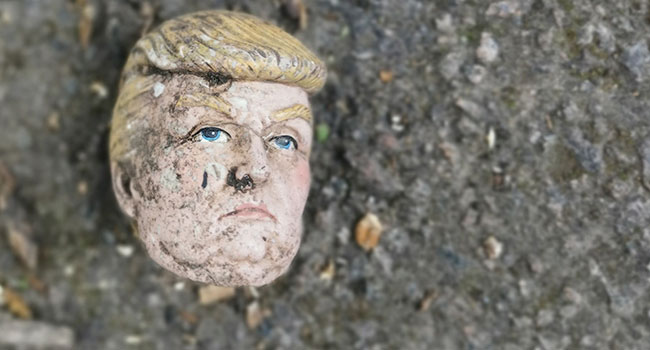 The United States Capitol was built in 1800 as the political home for members of Congress. It’s a magnificent piece of neoclassical architecture, and a popular destination for historians and tourists.
The United States Capitol was built in 1800 as the political home for members of Congress. It’s a magnificent piece of neoclassical architecture, and a popular destination for historians and tourists.
The Capitol has only been attacked on two occasions.
The first was during the War of 1812. British forces initiated the burning of Washington and invaded the nation’s capital in August 1814. The Capitol was partially destroyed and underwent a five-year reconstruction to restore its former glory.
The second occurred last Wednesday, when Congress met to certify the electoral college votes as part of the presidential election. It wasn’t an attack from a foreign country but rather a group of protesters who deserve to be classified as domestic terrorists.
Many of us watched this horrifying scenario unfold. Broken glass. Doors smashed open. Offices ransacked and looted. Personal property destroyed. Waste and debris left behind.
Politicians and staffers were either holed up in their offices or hiding for several hours. Some recorded chilling audio and video of the rioters marching down the halls, and attempting to break down doors and offices.
Five people died, including one police officer, during the storming of the Capitol. Fifty-six police officers were injured and at least five protestors were hospitalized. More than 80 people have been arrested, with more surely to come.
Had a few things gone differently, and the angry mob marched down the corridors in different directions, it could have been much worse.
The stark images of the domestic terrorists are impossible to forget:
- A bizarre-looking fellow with horns on his head.
- The protester who defiantly put his feet on House leader Nancy Pelosi’s desk.
- Several rioters carrying the Confederate flag through the hallowed halls of Congress.
- T-shirts containing everything from conspiracy theories to racist remarks.
All of them looked quite pleased with the destruction and mayhem they caused.
They had nothing to be proud of. When the powerful arm of the law catches up with them, they’ll rue the day they ever participated in this terrible moment in U.S. history.
It was an insurrection one would expect to find in – as former President George W. Bush noted – a “banana republic.” To believe it would happen in the U.S. in our lifetime, or any lifetime, seems unthinkable.
Yet it did.
How did police and security officials allow this situation to escalate? Were there warnings that authorities ignored? Were some or all of the terrorists carrying weapons or explosives? Was it an organized affair, as some now suggest?
The answers to these questions will eventually be revealed.
There’s also the involvement of President Donald Trump to consider. He didn’t march alongside this angry mob or cause any destruction, but his words had a powerful effect. Weeks of outrageous claims of widespread electoral fraud (which remain unproven in court), the presidential election was stolen from him (also unfounded), and that his more than 74 million voters should feel disenfranchised (many of them do) riled up his supporters.
Trump’s speech earlier the same day at the Save America March, in which he claimed he would “never concede” the election, ultimately stoked the flames that led to the firestorm at the Capitol.
Does this mean Trump should face articles of impeachment (again) by House Democrats? Or the possibility of being declared unfit for office via the 25th Amendment of the U.S. Constitution? Or be forced to resign from office?
No on all counts.
While Trump is far from blameless, he can’t be directly held responsible for the violent actions of domestic terrorists. Democrats have been trying to remove Trump from office during his entire presidency and the fact that this is happening again near the end of his term creates an image that it’s nothing more than a political stunt.
As well, there will be some Republicans in Congress who support impeachment privately but won’t want to get involved in this public battle that would set a terrible precedent in U.S. politics.
Plus, the scene around the Capitol Building and Washington could get far more violent than what we just witnessed if Trump was actually tossed out of office and barred from running again.
On Inauguration Day on Jan. 20, the formal transfer of presidential power from Trump to Joe Biden will occur, and this terrible day in history will be behind us.
Alas, the ramifications for American democracy will be discussed and debated for decades to come, including in the U.S. Capitol.
Michael Taube, a Troy Media syndicated columnist and Washington Times contributor, was a speechwriter for former prime minister Stephen Harper. He holds a master’s degree in comparative politics from the London School of Economics.
For interview requests, click here. You must be a Troy Media Marketplace media subscriber to access our Sourcebook.
The views, opinions and positions expressed by columnists and contributors are the author’s alone. They do not inherently or expressly reflect the views, opinions and/or positions of our publication.

